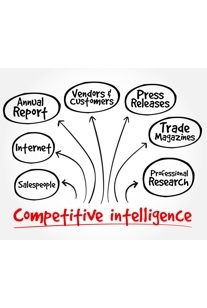
Please Wait.....
News

How to gather market intelligence? Here are 5 solutions used by market leaders
Articles/Opinions
2019-07-01Do you want to use market intelligence in your business, but you don’t know how to gather market intelligence and how to choose reliable market intelligence sources? Below we present 5 specific and proven methods that are used by market leaders.
1. Use data collected inside your company
Each company has a lot of important information about its market, sometimes even without realising that they own them. It is impossible to conduct business well without using this internal data. And that's why this point – opposite to all the following ones – is mandatory for every single company.
You can reach for marketing data to build an image of the target group to which communication is addressed (who visits the website?, who comments below corporate social media posts?, who subscribes to the company's newsletter?). It is also crucial to check sales data, for example broken down into channels, products, regions, and thus better understand customers (which group values quality?, for whom is the price most important?, was each product equally well accepted in each of the countries?).
2. Collect external data yourself or with the help of colleagues
A good strategy for gathering market knowledge is to devote time to it inside the company. You can do it yourself and be sure that you get high quality effects. Unfortunately, this can be a very time-consuming approach. So, you can invite a co-worker, intern or trainee to help you. But with the latter option, it is necessary to choose a meticulous, accurate person, and agree project management and data verification methods.
Searching for data presents many channels of business information. Collecting materials and information during fairs and conferences, you can, for example, identify new trends. Browsing competition websites, you can get to know their strategies, plans and financial situation. Regularly visiting shops, you can notice changes in the range of products and services available on the market. And as a result of meetings with distributors, you can assess the potential of each of the sales channels.
3. Use external, free-of-charge, ready-to-use documents
There are many organisations and companies that collect and analyse market data, and then share it free-of-charge. They provide not only raw data, but also expert explanations and opinions of leaders, as well as market reports.
In the first place it is worth mentioning here statistical offices, market organisations, industry associations and chambers of commerce. The second group are companies that spread their know-how, treating it as an element of their marketing activity. And in the end, they can also be more or less formal networking groups whose members support each other in doing business.
Usually, all these entities do their best to provide data of high quality. But unfortunately it is not always of a good standard and there are many unreliable studies. So, before using any free external data, it is necessary to thoroughly verify them.
4. Buy access to external data sources
Searching, collecting and analysing market data is not only time-consuming, but also requires many specific skills. When there are no such resources or competences inside the company, and there are no good and free external sources, it is worth looking for an external market intelligence provider.
By choosing this solution, you can use two formats:
- market reports (printed materials or electronic files) – this is worth considering when information is needed to complete a one-off project,
- subscriptions (newsletters or online portals) – these are great sources of knowledge when it is important to monitor the market in the long run, however you may be tied in to a long term contract to a solution that does not cater to 100% of your requirements.
5. Engage a market intelligence expert to support your company
The last approach saves a lot of time and energy, and sometimes also money. Instead of personally dealing with the tedious search and comparing sources of knowledge about the market, you can outsource this task to a specialised company.
Learn how to select a market intelligence partner >
An external expert operating in the field of market intelligence not only knows offers available on the market, but also understands how to check its validity and credibility. Professional market intelligence companies are also able to recommend a solution tailored to individual needs (such as market research or business consulting), and may even help negotiate better prices.

